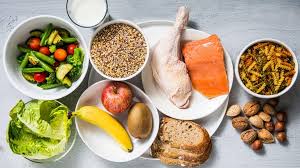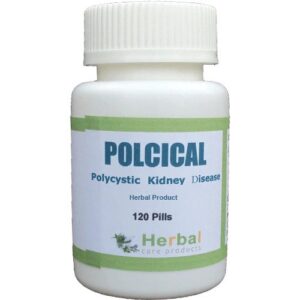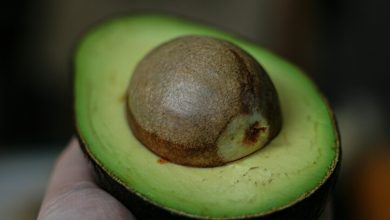Top Foods for Kidney Health: Supercharge Your Wellness Naturally

Your kidneys are essential for maintaining your body’s overall health, acting as sophisticated filters that remove toxins, balance fluids, and regulate blood pressure. Supporting their function with the right nutrition is crucial for preventing disease and ensuring long-term wellness. If you’re wondering how to protect these vital organs, incorporating the best foods for kidney health into your diet is a great place to start. In this comprehensive guide, we’ll explore nutrient-packed options to naturally supercharge your kidney health.
Why Is Kidney Health Important?
The kidneys perform several critical tasks:
- Filtering waste: They remove waste and excess fluids from the blood, which are excreted as urine.
- Balancing electrolytes: Sodium, potassium, and calcium levels are regulated by the kidneys.
- Blood pressure regulation: By controlling fluid balance and hormone production, kidneys help stabilize blood pressure.
- Bone health support: The kidneys activate vitamin D, which is vital for calcium absorption and bone strength.
By incorporating foods that nourish and protect your kidneys, you can reduce the risk of kidney stones, chronic kidney disease (CKD), and other related conditions.

Top Foods for Kidney Health
1. Blueberries: Antioxidant Powerhouses
Blueberries are rich in anthocyanins, antioxidants that combat inflammation and oxidative stress—key contributors to kidney damage. Their low potassium content also makes them an excellent choice for those with compromised kidney function.
Benefits:
- Protects kidney cells from oxidative damage.
- Supports heart health, which is closely linked to kidney function.
2. Red Bell Peppers: Low-Potassium Nutritional Gems
Red bell peppers are loaded with vitamins C, A, and B6, as well as folate and fiber. These nutrients support overall health without overburdening the kidneys with excess potassium.
Benefits:
- Boosts immunity and promotes healthy skin.
- Reduces inflammation and supports digestion.
3. Cauliflower: A Detoxifying Superstar
Cauliflower is high in fiber and contains compounds like glucosinolates that help the body detoxify. It’s also versatile and can replace higher-carb options like potatoes in meals.
Benefits:
- Supports detoxification pathways.
- Helps manage blood sugar levels.
Kidney-Friendly Fruits
4. Apples: Nature’s All-Rounder
Apples are rich in pectin, a type of soluble fiber that helps reduce cholesterol and blood sugar levels. They’re also low in potassium, making them ideal for kidney health.
Benefits:
- Lowers the risk of kidney stones.
- Supports heart and digestive health.
5. Cranberries: The Urinary Tract Protectors
Cranberries are renowned for their role in preventing urinary tract infections (UTIs), which, if untreated, can lead to kidney infections.
Benefits:
- Reduces the risk of UTIs.
- Provides antioxidants that protect kidney cells.

Protein Choices for Kidney Health
6. Skinless Chicken
Lean protein sources like skinless chicken are vital for repairing body tissues and supporting muscle health without overburdening the kidneys.
Benefits:
- Provides high-quality protein for tissue repair.
- Low in phosphorus compared to other protein sources.
7. Egg Whites: Low-Phosphorus Protein Source
Egg whites are an excellent source of protein without the phosphorus found in yolks. They’re particularly beneficial for those managing CKD.
Benefits:
- Supports tissue repair.
- Easy to incorporate into various dishes.
Herbs and Spices for Kidney Health
8. Garlic: Nature’s Antibiotic
Garlic not only enhances the flavor of dishes but also provides anti-inflammatory and antibacterial properties that benefit kidney health.
Benefits:
- Lowers cholesterol levels.
- Reduces inflammation in the kidneys.
9. Parsley: A Kidney Tonic
Parsley is a natural diuretic, helping to flush toxins and excess fluids from the body.
Benefits:
- Supports detoxification.
- Rich in vitamins A, C, and K.
Grains and Legumes for Kidney Wellness
10. Buckwheat: A Nutrient-Dense Alternative
Unlike many whole grains, buckwheat is low in phosphorus, making it kidney-friendly. It’s also rich in magnesium and iron.
Benefits:
- Provides essential nutrients without straining the kidneys.
- Supports heart and digestive health.
11. Lentils: Packed with Plant Protein
While lentils are slightly higher in potassium, they provide plant-based protein and fiber that support kidney health when consumed in moderation.
Benefits:
- Aids in weight management and digestion.
- Provides antioxidants that protect kidney cells.
Healthy Fats for Kidney Support
12. Olive Oil: Liquid Gold
Olive oil is rich in monounsaturated fats and antioxidants, making it an excellent choice for kidney and heart health.
Benefits:
- Reduces inflammation.
- Supports healthy blood pressure levels.
13. Flaxseeds: Omega-3 Boosters
Flaxseeds are a great source of omega-3 fatty acids, which help reduce inflammation and protect the kidneys from damage.
Benefits:
- Lowers cholesterol.
- Provides fiber and antioxidants.
Hydration and Kidney Health
Staying hydrated is just as important as the foods you consume. Drinking adequate water helps the kidneys flush toxins and prevents the formation of kidney stones. Aim for 8-10 glasses of water daily, or as advised by a healthcare professional.
Foods to Avoid for Optimal Kidney Health
While focusing on kidney-friendly foods, it’s equally important to limit or avoid:
- Processed foods: High in sodium and phosphorus additives.
- Sugary drinks: Can lead to obesity and diabetes, increasing the risk of kidney disease.
- Red meat: Contains high levels of phosphorus and saturated fats.
- Salt: Excess sodium can strain the kidneys and elevate blood pressure.
Practical Tips for Incorporating Kidney-Friendly Foods
- Meal Planning: Plan meals around kidney-friendly options to avoid last-minute unhealthy choices.
- Moderation is Key: Even kidney-friendly foods should be consumed in appropriate portions, especially for those with CKD.
- Experiment with Recipes: Try new dishes to make healthy eating enjoyable.
Conclusion
Caring for your kidneys doesn’t have to be complicated. By incorporating these nutrient-dense foods for kidney health into your daily routine, you can take proactive steps to support their function and overall well-being. Pair these dietary choices with regular exercise, hydration, and periodic check-ups to supercharge your wellness naturally.





